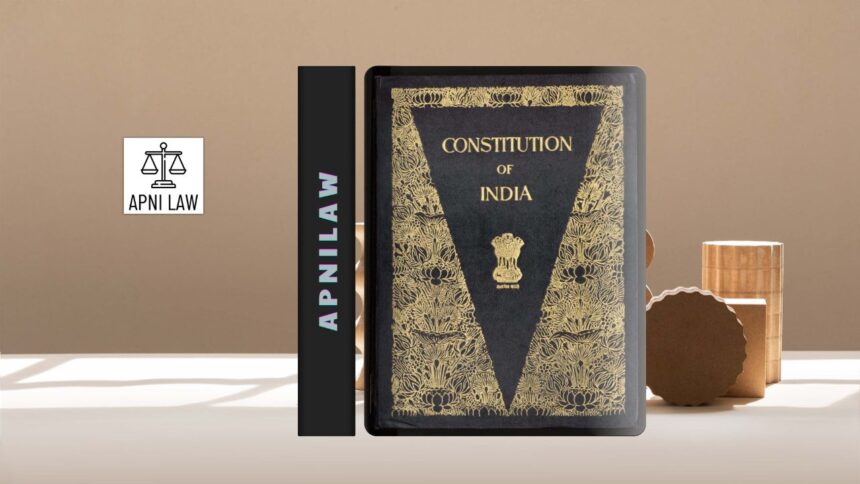Introduction
Indian Polity plays a crucial role in the UPSC Civil Services Preliminary Examination. Each year, several questions are asked from this topic, covering the Constitution, Fundamental Rights, Directive Principles, and Amendments. A clear understanding of these concepts helps aspirants score higher and builds a strong base for the Mains examination.
In this article, you’ll find carefully selected Polity MCQs along with detailed explanations. These questions will help you test your knowledge and understand how concepts are applied in exams. Moreover, every explanation highlights the reasoning behind the correct answer, which is key to improving your accuracy.
Part I – Fundamental Concepts of the Constitution
Q1. Which part of the Indian Constitution deals with Fundamental Rights?
A. Part II
B. Part III
C. Part IV
D. Part V
Answer: B. Part III
Explanation: Fundamental Rights are mentioned in Part III (Articles 12–35). They are inspired by the American Bill of Rights and protect citizens from arbitrary state action.
Q2. The concept of the “Rule of Law” is taken from which country’s Constitution?
A. USA
B. Britain
C. Ireland
D. France
Answer: B. Britain
Explanation: The idea of “Rule of Law” was given by A.V. Dicey. It means everyone, including the government, is subject to the law. Therefore, no one is above the law.
Q3. Who is known as the ‘Father of the Indian Constitution’?
A. Jawaharlal Nehru
B. Dr. Rajendra Prasad
C. Dr. B.R. Ambedkar
D. Sardar Vallabhbhai Patel
Answer: C. Dr. B.R. Ambedkar
Explanation: As Chairman of the Drafting Committee, Dr. B.R. Ambedkar guided the formation of the Constitution and defended its provisions in the Assembly. Hence, he is called its chief architect.
Part II – Constitutional Amendments and Federal Provisions
Q4. Which Article allows the President to impose President’s Rule in a State?
A. Article 350
B. Article 355
C. Article 356
D. Article 360
Answer: C. Article 356
Explanation: Under Article 356, the President can take control of a state’s administration if its government fails to function according to constitutional norms. The S.R. Bommai case (1994) clarified the limits of this power.
Q5. Which Amendment Act lowered the voting age from 21 to 18 years?
A. 42nd Amendment Act
B. 44th Amendment Act
C. 61st Amendment Act
D. 73rd Amendment Act
Answer: C. 61st Amendment Act
Explanation: The 61st Amendment (1988) reduced the voting age, giving young citizens the right to participate in the democratic process. This step encouraged youth engagement in governance.
Q6. Which Article of the Constitution deals with Fundamental Duties?
A. Article 51A
B. Article 14
C. Article 19
D. Article 368
Answer: A. Article 51A
Explanation: The 42nd Amendment (1976) inserted Article 51A, listing eleven Fundamental Duties. These duties remind citizens to promote harmony, protect the environment, and preserve India’s heritage.
Part III – Structure of Government and Distribution of Powers
Q7. Which Schedule of the Constitution divides powers between the Union and the States?
A. Fourth Schedule
B. Sixth Schedule
C. Seventh Schedule
D. Eighth Schedule
Answer: C. Seventh Schedule
Explanation: The Seventh Schedule defines three lists: the Union List, State List, and Concurrent List. This classification ensures a balance between central authority and state autonomy.
Q8. Which Constitutional Amendment is called the “Mini Constitution”?
A. 42nd Amendment
B. 44th Amendment
C. 73rd Amendment
D. 86th Amendment
Answer: A. 42nd Amendment
Explanation: The 42nd Amendment Act of 1976 made wide-ranging changes. It strengthened the Directive Principles, limited judicial review, and increased Parliament’s power. Consequently, it is known as the “Mini Constitution.”
Q9. Which Article guarantees equality before law?
A. Article 12
B. Article 14
C. Article 19
D. Article 21
Answer: B. Article 14
Explanation: Article 14 ensures that all individuals are equal before the law. It also guarantees equal protection of the laws. Thus, the State cannot discriminate arbitrarily among citizens.
Q10. Who recommends the distribution of taxes between the Union and the States?
A. NITI Aayog
B. Finance Commission
C. Planning Commission
D. Comptroller and Auditor General
Answer: B. Finance Commission
Explanation: According to Article 280, the Finance Commission advises how taxes should be divided between the Centre and the States. It ensures fiscal balance and cooperative federalism.
Part IV – Importance of Practicing Polity MCQs
Understanding the logic behind every question strengthens your conceptual clarity. Practicing MCQs regularly helps identify weak areas and improve time management. Moreover, most UPSC questions are conceptual rather than factual. Therefore, linking constitutional provisions with real-life governance examples is crucial.
FAQs
Q1. How many Polity questions come in UPSC Prelims?
Generally, around 12–15 questions are asked each year. They focus on topics like Fundamental Rights, Amendments, and Union–State relations.
Q2. Is Laxmikant’s book sufficient for Polity preparation?
Yes, M. Laxmikant’s Indian Polity remains the best reference book. However, supplement it with mock tests and newspaper editorials.
Q3. Why are Constitutional Amendments important for UPSC?
Amendments reflect India’s evolving governance. Questions on the 42nd, 44th, 73rd, 74th, and 101st Amendments often appear in the exam.
Q4. How can I improve accuracy in Polity MCQs?
Focus on understanding Articles, link them with case laws, and revise through short quizzes. Consistent revision helps retain details longer.
Conclusion
Polity is one of the most rewarding subjects in the UPSC syllabus. By studying systematically and practicing questions daily, you can easily master this segment. Each MCQ strengthens your conceptual base and builds confidence for the exam.
For any specific query call at +91 – 8569843472








